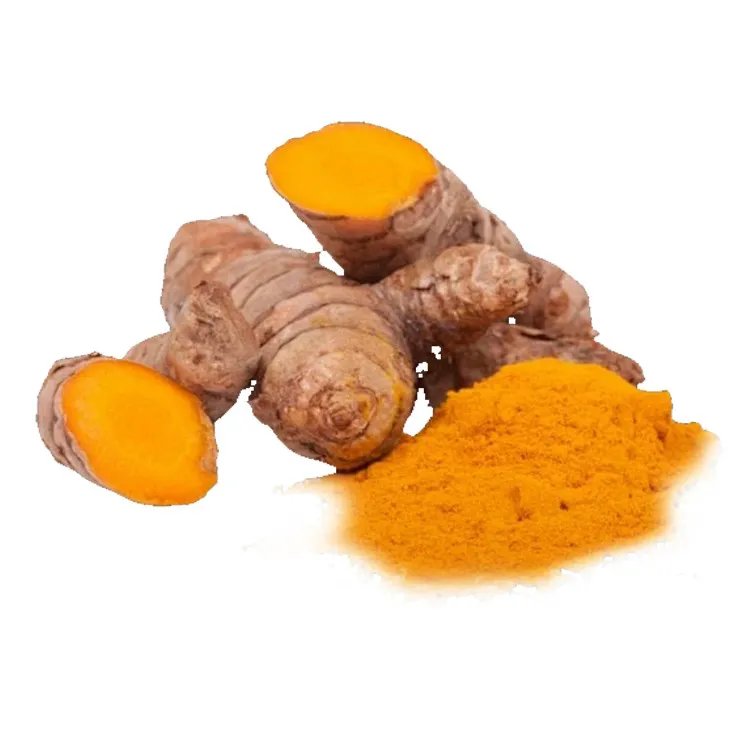- 0086-571-85302990
- sales@greenskybio.com
Should I Take Curcumin at Night?
2025-05-30

Curcumin, the active compound found in turmeric, has garnered significant attention for its potential health benefits. Widely recognized for its anti-inflammatory, antioxidant, and therapeutic properties, Curcumin is often used to support a variety of health goals, from managing arthritis and enhancing cognitive function to improving cardiovascular health. However, when it comes to maximizing the effectiveness of Curcumin, a common question arises: should it be taken at night?
To address this question, let’s delve into the unique attributes of curcumin, the science behind its absorption, and how timing might play a role in its efficacy.
Understanding Curcumin’s Benefits
Curcumin is renowned for its ability to modulate inflammation, which is central to its many reputed health benefits. It works by inhibiting molecules known to formulate the inflammatory response, such as cytokines and enzymes like COX-2. Beyond its role in managing inflammation, curcumin is also a strong antioxidant. It neutralizes harmful free radicals, thereby protecting cells from oxidative stress, which is a contributing factor to chronic diseases and aging.
Additionally, curcumin has been studied for its potential to support brain health. Research suggests that it may enhance levels of brain-derived neurotrophic factor (BDNF), a protein crucial for long-term memory and synaptic plasticity. Some studies also propose curcumin's role in reducing depressive symptoms by influencing the production of serotonin and dopamine.

Absorption and Bioavailability
One of the challenges with curcumin supplementation is its low bioavailability. Curcumin is not easily absorbed by the body, which can impede its therapeutic potential. To counteract this, it is common to combine curcumin supplements with piperine, a compound found in black pepper that considerably enhances absorption. Other formulations use nanoparticles, liposomes, or phospholipid complexes to increase its uptake.
Timing may play a considerable role in optimizing the absorption and impact of curcumin. Here, the debate centers on whether bedtime is an ideal time for supplementation. Taking curcumin at night could be beneficial for several reasons:

Why Nighttime Might Be Beneficial
1. Improving Sleep Quality:
Emerging evidence suggests that curcumin might aid in improving sleep quality, particularly for those suffering from disorders such as insomnia. Curcumin’s anti-inflammatory and antioxidant properties may contribute to reducing systemic inflammation, which is known to adversely impact sleep. Furthermore, curcumin’s role in regulating neurotransmitters like serotonin could promote better sleep patterns.
2. Supporting Recovery and Healing:
During sleep, the body undergoes recovery processes, repairing tissues and reducing stress-induced damage. Taking curcumin at night may help leverage its anti-inflammatory benefits to support these natural healing processes. This timing might be particularly useful for individuals with chronic pain or athletes seeking to enhance muscle recovery post-training.
3. Aligning with Natural Rhythms:
The body’s circadian rhythms dictate many bodily functions, including metabolism and hormone release. As such, taking curcumin at night might align with these natural rhythms, potentially enhancing its impact. Some proponents believe that compliance with circadian patterns can prime the body for better nutrient uptake and effectiveness.

Considerations for Nighttime Use
Despite potential benefits, there are considerations to keep in mind when contemplating nighttime curcumin use. The most pertinent involves digestive health. Curcumin might occasionally cause gastrointestinal discomfort in sensitive individuals. Thus, it is crucial to monitor how curcumin affects your digestion at different times of day. Taking it with food, or alongside ginger or probiotics, may help mitigate these issues and ensure easier digestion.
Moreover, individual variations in response to supplements should be acknowledged. People metabolize compounds like curcumin differently, influenced by factors such as genetic predispositions, gut microbiota, and overall health status. Thus, personalized experimentation with timing might be necessary to discover what suits one's unique physiology the best.

Conclusion
Curcumin continues to receive praise from researchers and health enthusiasts alike for its broad-spectrum benefits. While science provides compelling reasons to consider curcumin supplementation, the timing of intake, such as choosing to take it at night, might contribute to enhanced results for certain health objectives.
However, timing should be personalized. It is advisable to monitor individual responses and consult with healthcare professionals before making substantial changes to your supplement routine. Taking curcumin at night could indeed prove a strategic approach, optimizing its beneficial properties in line with body rhythms and supporting sleep quality and recovery.
Ultimately, whether absorbed during the quiet hours before sleep or during the hustle of daily activity, curcumin remains a robust ally in the pursuit of optimal health. Making informed, individualized choices about its use can aid in harnessing its full potential, contributing not just to nighttime healing, but to a holistic improvement in well-being.
- ▶ Hesperidin
- ▶ citrus bioflavonoids
- ▶ plant extract
- ▶ lycopene
- ▶ Diosmin
- ▶ Grape seed extract
- ▶ Sea buckthorn Juice Powder
- ▶ Beetroot powder
- ▶ Hops Extract
- ▶ Artichoke Extract
- ▶ Reishi mushroom extract
- ▶ Astaxanthin
- ▶ Green Tea Extract
- ▶ Curcumin Extract
- ▶ Horse Chestnut Extract
- ▶ Other Problems
- ▶ Boswellia Serrata Extract
- ▶ Resveratrol Extract
- ▶ Marigold Extract
- ▶ Grape Leaf Extract
- ▶ blog3
- ▶ Aminolevulinic acid
- ▶ Cranberry Extract
- ▶ Red Yeast Rice
- ▶ Red Wine Extract
-
Mulberry leaf Extract
2025-05-30
-
Citrus Aurantium Extract
2025-05-30
-
Camu Camu Extract
2025-05-30
-
Coconut Water Powder
2025-05-30
-
Calendula Extract
2025-05-30
-
Bilberry Extract
2025-05-30
-
Passionflower Extract
2025-05-30
-
Polygonum Cuspidatum Extract
2025-05-30
-
Saffron Extract Powder
2025-05-30
-
Angelica sinensis extract
2025-05-30





















